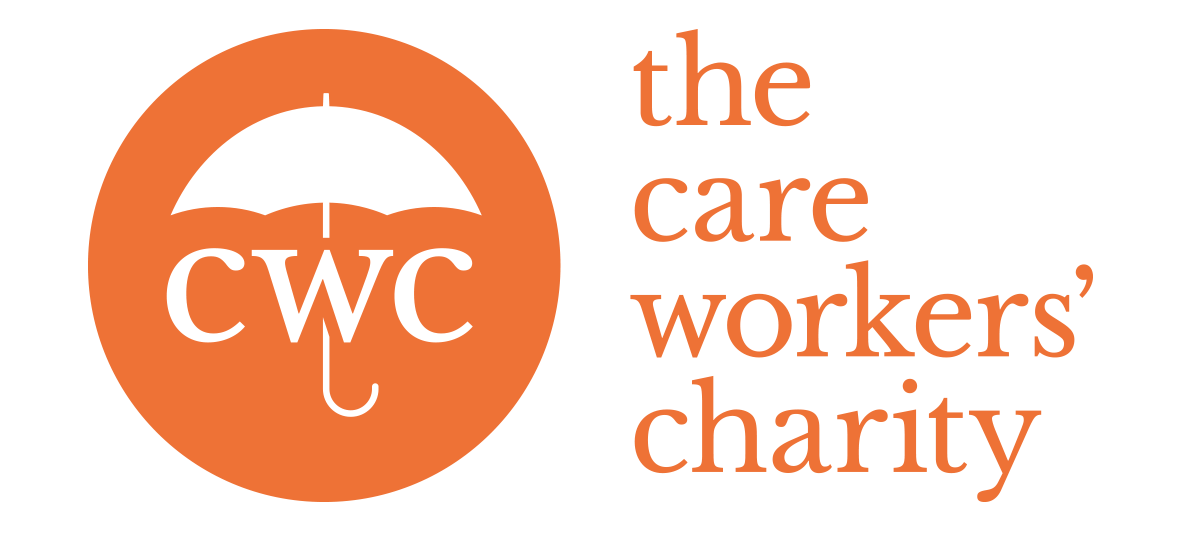Crisis Grant
1. Employed in the UK social care sector in a role that is involved in or supports the provision of adult, elderly or disability care, such as:
- Residential social care
- Domiciliary/home care
- Supported living care
- Day care
- Private care
* Please note that NHS employees and nurses are not eligible for crisis grants from CWC. NHS employees can access financial support from multiple charities, including Cavell Nurses’ Trust, Royal College of Nursing, Healthcare Workers Foundation and Junius Morgan
2. Employment Length
- Currently Employed: At least 1 years’ service
- Previously Employed: At least 5 years’ service in your lifetime
3. There has been a change in circumstances in the last year that has had a significant financial impact
- A sudden or unexpected loss of income
- A sudden or unexpected illness or injury
- A sudden or unexpected change in living circumstances or loss of home
- A relationship breakdown
- An issue of domestic abuse
- Death of a close relative
4. Financial Threshold
- Applicants must not be over 25% of the Minimum Income Standard (MIS). This calculation was developed by the poverty research charity, The Joseph Rowntree Foundation, and its assessment of what is needed for households to have a decent minimum living standard in the UK.
- Managers’ incomes are typically above this threshold.
- Household savings less than £3,000 for a single adult household or £6,000 for a couple.
5. Checked Entitlement to all Means Tested Benefits
- Applicants must check their entitlement to means tested benefits with respect to their recently changed living circumstances
- You can use the Turn2Us Benefits checker or the Turn2Us helpline (0808 802 2000)
6. You have NOT received a grant from The Care Workers Charity in the last twelve months
Grant awards are typically limited to a maximum of £500. Maximum grants for daily living costs are limited to £250.
We may be able to assist with:
- Daily living expenses
- Essential whitegoods
- Essential household items
- Moving costs
- Health improvement aids and adaptations
- Travel expenses to hospital
- Essential household repairs
- Car repairs
- Funeral costs
- Bankruptcy and Debt Relief Order (DRO) application fee
- Fees to prevent eviction
- Debts – consumer credit/debt repayments, payday loans, overdraft fees, rent arrears
- Legal fees and costs of legal representation
- Payment of fines
- House purchase
- Private medical treatment
- Private education
- Higher education course fees
- Carpets
1. MANDATORY: Proof of your employment history in the care sector (one document)
- Recent payslip, P60 form, or P45 form
- Confirmation letter from your employer stating your period of employment
2. MANDATORY: A letter of support
- The letter should confirm the circumstances listed in the application, the potential difference the grant would make, and any supporting details that illustrate the applicant’s situation.
- The person writing the supporting letter should be a professional. Examples of acceptable sources: housing support worker, doctor, debt advisor, manager at work or an agency such as the Citizen’s Advice Bureau.
- The letter should be signed and on headed paper.
- This letter should NOT be from a friend, family member, or co-worker.
3. Medical confirmation of illness/injury
- SSP stating time off work due to health issue.
- Medical letter confirming the condition.
- Mobility aids need to be recommended by a medical professional.
- If you are requesting a grant to pay towards home adaptations due to disability, you must have applied for a Disabled Facilities Grant and have a recent occupational therapist’s letter recommending the adaptations.
4. Repair Costs: Two Contractor Quotes
5. Preventing Eviction: Proof of Eviction Proceedings
6. Bankruptcy or DRO Requests: Letter from a Debt Advice Specialist
7. Moving Costs: New tenancy agreement, removal quotes
8. Domestic Violence: Letter from a domestic violence support organisation
9. Funeral Costs: Funeral bill, statement of remaining balance, and evidence of your application for the government’s Funeral Expenses Payment if you are eligible
Online: www.thecareworkerscharity.org.uk/hardship-grant
Fill out the application online and upload your supporting documents. If you are unable to upload your documents, you may send them via email. You can begin the application and return to it later.
If our form is not accessible due to a disability need, we encourage you to access help through a friend or agency (such as Citizens Advice). If you need further support, please contact grants@thecwc.org.uk.
Assessment
We must receive all required documentation before we are able to assess an application. It takes 1-3 weeks to assess an application. We aim to have two rounds of assessments a month, near the 1st and 15th of each month.
Award Decision
The Care Workers’ Charity will notify applicants via email regarding the outcome of their grant application and to collect banking details if necessary.
Payment
Grant award payments are issued in one of three ways:
- Payments directly to grantees via BACS
- Payments directly to third parties via BACS (ex: funeral homes, contractors, etc)
- White good and household item delivery via our suppliers, which will coordinate delivery with grantees directly
